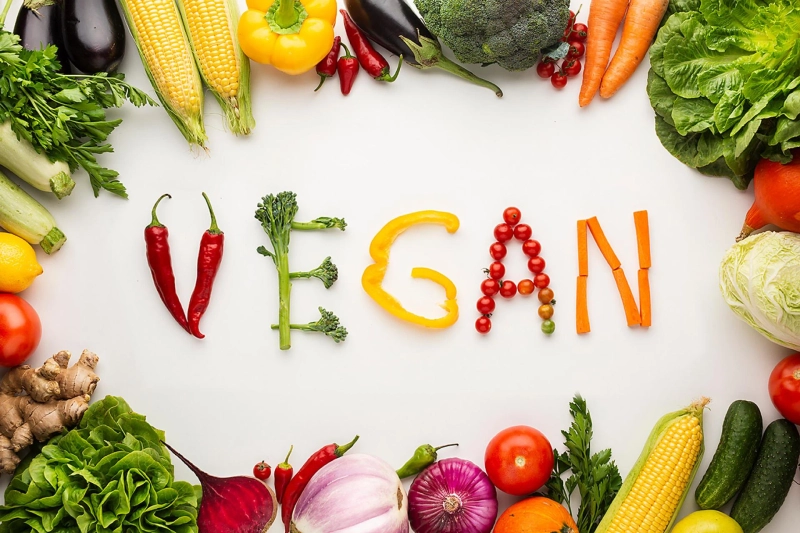Veganism is a lifestyle and dietary choice that has gained significant popularity in recent years due to its ethical, environmental, and health-related principles. At its core, veganism involves abstaining from the consumption of animal products and by-products, as well as avoiding the use of animals for any purpose, including clothing and entertainment. This philosophy extends beyond dietary choices to encompass a broader commitment to animal welfare and environmental sustainability.
Understanding Veganism
Veganism is more than just a diet; it is a belief system that seeks to minimize harm to animals and reduce the environmental impact of human activities. The term "vegan" was coined in 1944 by Donald Watson, who founded the Vegan Society in the UK. The movement has since grown into a global phenomenon, with millions of people choosing to adopt a vegan lifestyle for various reasons.
Central to veganism is the ethical stance against animal exploitation. This includes refraining from consuming meat, dairy, eggs, honey, and other animal-derived ingredients. Vegans also avoid products tested on animals and opt for cruelty-free alternatives in personal care products and household items.
What Do Vegans Eat?
Contrary to common misconceptions, a vegan diet is diverse and nutritionally adequate when properly planned. It includes a wide variety of plant-based foods that provide essential nutrients such as vitamins, minerals, protein, and healthy fats. Here are some key components of a vegan diet:
Fruits and Vegetables: These form the foundation of a vegan diet, providing a wealth of vitamins, minerals, antioxidants, and fiber. Examples include leafy greens like spinach and kale, berries, citrus fruits, carrots, and bell peppers.
Legumes: Beans, lentils, chickpeas, and peas are excellent sources of plant-based protein, fiber, iron, and other essential nutrients. They can be used in soups, stews, salads, and as substitutes for meat in dishes like burgers and tacos.
Whole Grains: Quinoa, brown rice, oats, barley, and whole wheat are nutritious staples that provide complex carbohydrates, fiber, and essential minerals. They serve as the base for many vegan meals, including grain bowls, stir-fries, and pasta dishes.
Nuts and Seeds: Almonds, walnuts, chia seeds, flaxseeds, and hemp seeds are rich in protein, healthy fats (such as omega-3 fatty acids), vitamins, and minerals. They can be enjoyed as snacks, added to smoothies, or used as toppings for salads and desserts.
Plant-Based Protein Sources: Tofu, tempeh, and seitan are versatile meat substitutes that provide ample protein and can be seasoned and cooked in various ways. Other sources include plant-based protein powders derived from peas, hemp, or soy.
Dairy Alternatives: Instead of cow\'s milk, vegans opt for plant-based milks such as almond, soy, oat, coconut, or rice milk. These alternatives are fortified with calcium, vitamin D, and other nutrients to mimic the nutritional profile of dairy milk.
Healthy Fats: Avocados, olives, and plant-based oils (such as olive, coconut, and avocado oil) provide essential fatty acids and contribute to flavor and texture in cooking.
Benefits of a Vegan Diet
Adopting a vegan diet can offer several health benefits, including lower risks of heart disease, hypertension, type 2 diabetes, and certain types of cancer. Plant-based diets tend to be higher in fiber and lower in saturated fat and cholesterol compared to omnivorous diets, contributing to better overall health outcomes.
From an environmental perspective, veganism reduces the demand for animal agriculture, which is a significant contributor to greenhouse gas emissions, deforestation, and water pollution. By choosing plant-based foods, individuals can reduce their carbon footprint and promote sustainable food systems.
Challenges and Considerations
While a vegan in india can be nutritious and health-promoting, it requires careful planning to ensure adequate intake of essential nutrients such as vitamin B12, iron, calcium, omega-3 fatty acids, and vitamin D. Vegans may need to incorporate fortified foods or supplements into their diet to meet these needs, especially vitamin B12, which is primarily found in animal products.
Additionally, navigating social situations and dining out as a vegan can present challenges, as many traditional menus are centered around animal-based dishes. However, with increasing awareness and demand for vegan options, restaurants and food establishments are expanding their offerings to accommodate plant-based diets.
Conclusion
In conclusion, veganism is a lifestyle choice that goes beyond dietary preferences to encompass ethical considerations, environmental sustainability, and personal health goals. A well-planned vegan diet can provide all the necessary nutrients for optimal health while supporting animal welfare and reducing environmental impact. By embracing plant-based foods and alternatives, vegans contribute to a more compassionate and sustainable future.
As awareness grows and more people adopt vegan practices, the availability and variety of vegan-friendly products and recipes continue to expand, making it easier than ever to embrace a vegan lifestyle and enjoy its many benefits.



